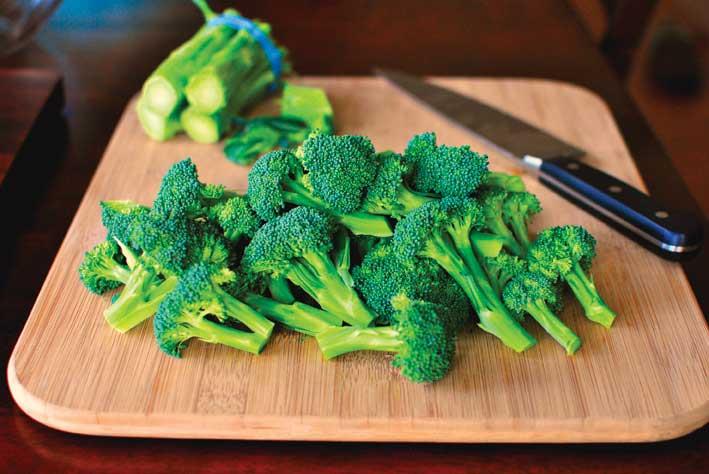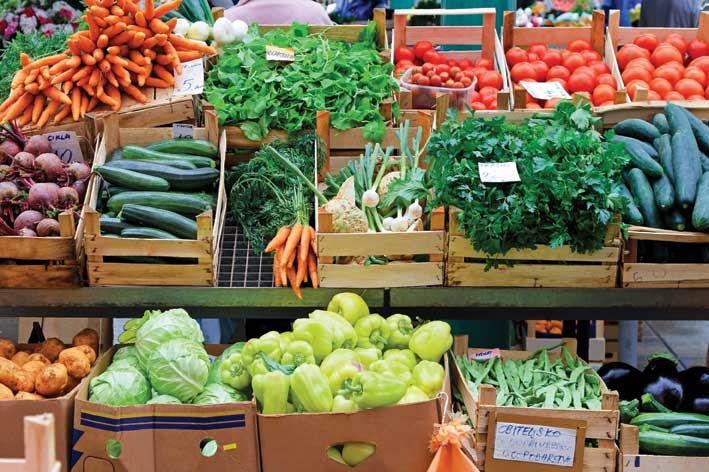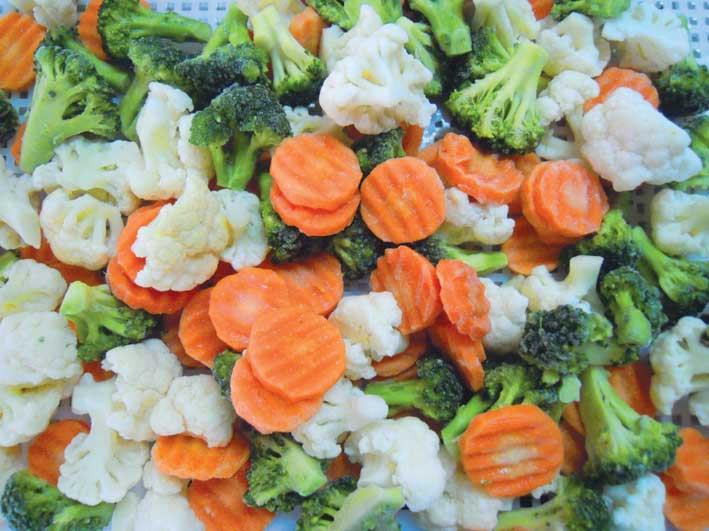BROCCOLI contains anti-inflammatory nutrients, including vitamins C and K, folate and beta carotene and no saturated fat or cholesterol. It is a very good source of fibre, vitamins A, B6, C and K, folate, potassium and manganese and a good source of protein, vitamin E, thiamin, riboflavin, calcium, iron, magnesium, phosphorous and selenium.
CARROTS contain known anti-inflammatory nutrients, including beta carotene and contain no saturated fat and or cholesterol. They are a very good source of fibre, vitamins A, C and K, and of Potassium and are a good source of vitamin B6, Folate, Manganese, Niacin, and Thiamin.
Quick snacks
There are lots of health reasons for eating your daily dose of vegetables but cooked vegetables are often unpalatably reminiscent of school lunch. Herbs and spices can cancel those bad memories by adding edge to these recipes. For a small, one-person snack, allow two medium-sized carrots and a fist sized broccoli branch. Multiply the amounts for bigger portions or for more servings. Preparation time is minimal as no peeling is necessary. Just wash the broccoli and carrots thoroughly and trim off the rough ends.
Warm salad. Slice carrots into ‘coins’ half a centimeter thick. Wash the broccoli and break it into florets. Blanch in boiling-hot water or stir fry with a little olive oil until the carrots are slightly soft and the broccoli bright green. Drain, drizzle with olive oil and chopped coriander and serve sprinkled with toasted almond flakes accompanied by crusty, whole meal bread.
Vegetable soup. Dice and cook carrots in salt-free, home-made vegetable stock. When the carrots are softened but still firm, add washed broccoli florets, cook for a few minutes and then blend to a puree. Serve in individual bowls with a swirl of olive oil and a sprinkling of chopped parsley and red chili pepper.
Chicken soup. Cut carrots into julienne strips, break broccoli into tiny florets, chop chicken breast into chunks and cook the whole lot in salt-free, home-made vegetable stock. Just before serving, add a tablespoon of chopped coriander and a sprinkling of red chili pepper.

STORAGE
Raw carrots will keep unrefridgerated for a few days in an airy container. Store broccoli unwashed in an open plastic bag in the vegetable drawer in the fridge. Cooked vegetables need to be stored in airtight containers in the fridge.

FLASH POINTS
Do you remember being told to eat your carrots because they’re good for your eyes? That’s because they’re a good source of vitamin A. Too much vitamin A could weaken your bones, though, especially if you’re susceptible to osteoporosis. However, you’re likely to be sick of carrots before you get anywhere near the limit. If in doubt, ask your doctor for advice.
Too much beta carotene can turn your skin orange. Since you would need to eat large amounts of it for this to happen, it’s best to see a doctor if your skin colour changes.
About half the energy content of carrots comes from sugar, so make caramelised carrots the exception rather than the rule, especially if you are on a sugar-controlled diet. Cook them simply by steaming, or simmering in salt-free vegetable stock.

CHOOSING YOUR VEGETABLES
Don’t buy imported vegetables in packets. Buy local vegetables, whenever possible. They’re fresher and, when in season, they’re usually cheaper too. Choose broccoli that are deep green. Good colour indicates a better nutrient content. Avoid broccoli with open, flowering, discolored, or water-soaked bud clusters and tough or rubbery stems. Other than that, use common sense. Spongy broccoli is fine, as long as it’s firm. Spongy carrots are not fine at all.

FRESH OR FROZEN?
Packaged frozen vegetables can differ from fresh in their nutrient content. Broccoli buds or florets contain more beta-carotene than the stalks so, since broccoli stalks are trimmed off before freezing, a packet will contain more beta carotene. On the other hand, frozen broccoli contains twice as much sodium as fresh, half the calcium, and less iron, thiamin, riboflavin, and vitamin C.